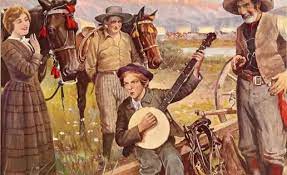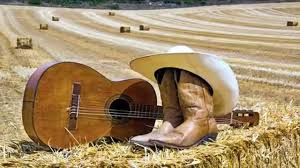What is country?
The musical genre of country is a style of popular music originating in the United States with its roots in folk music traditions, especially Appalachian music and the influence of traditional music from European immigrants. Country is characterized by its focus on storytelling through emotive lyrics, covering themes ranging from love and loss to rural life and everyday experiences. Instrumentally, country often includes elements such as acoustic guitar, violin, banjo, and steel guitar, contributing to its distinctive rustic sound.
Over the years, country has evolved and diversified, giving rise to subgenres like country pop, country rock, and outlaw country, among others. This genre has left a significant mark on American popular music and has influenced artists from various musical styles worldwide. The attire and lifestyle associated with country have also contributed to its unique identity, creating a recognizable subculture in American music and culture.
History of country
The history of the country music genre dates back to the very roots of the United States, finding its earliest expressions in the musical traditions of the Appalachians and in the rural communities of the South in the 18th and 19th centuries. These influences blended with the traditional songs of European, African, and Mexican immigrants, creating a distinctive sound that reflected the experiences and emotions of rural life and daily struggles. The advent of radio in the 1920s allowed country music to reach a broader audience, solidifying its status as a significant musical genre.
During the 1920s, country music began gaining popularity through radio broadcasts and phonograph recordings. Artists like Jimmie Rodgers and The Carter Family emerged as pioneers of the genre, establishing their unique styles and contributing to its national expansion. The Great Depression and World War II also played a crucial role in the evolution of country music, as song lyrics addressed social and emotional issues that resonated with the audience of the time.
In the 1940s and 1950s, country music underwent significant evolution with the introduction of honky-tonk music and the arrival of iconic artists such as Hank Williams and Patsy Cline. Figures like Elvis Presley, Johnny Cash, and Patsy Cline brought country music to a broader audience. As the genre continued to develop, variants like outlaw country emerged, with figures like Willie Nelson and Waylon Jennings challenging established conventions. The rise of country western and the popularity of country music in the cinematic scene further contributed to its spread.
During the 1960s, country merged with other musical styles, giving rise to country rock and opening doors for artists like Johnny Cash and Glen Campbell. As time progressed, country music continued to diversify with subgenres like outlaw country and country pop, solidifying its presence as a versatile and enduring musical genre on the world stage.

The 9 most outstanding artist
- Hank Williams
- Johnny Cash
- Patsy Cline
- Dolly Parton
- George Jones
- Loretta Lynn
- Willie Nelson
- Merle Haggard
- Taylor Swift

